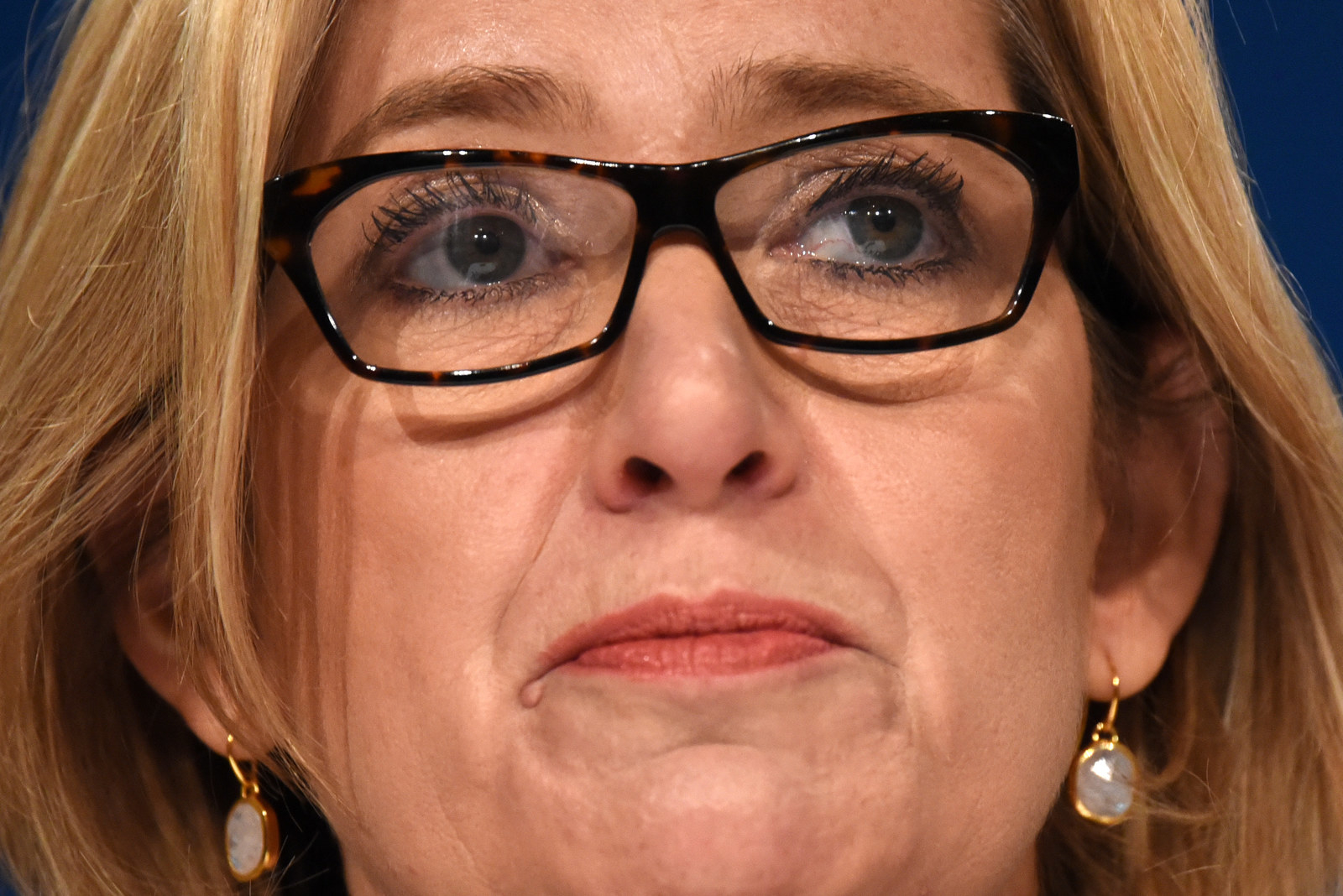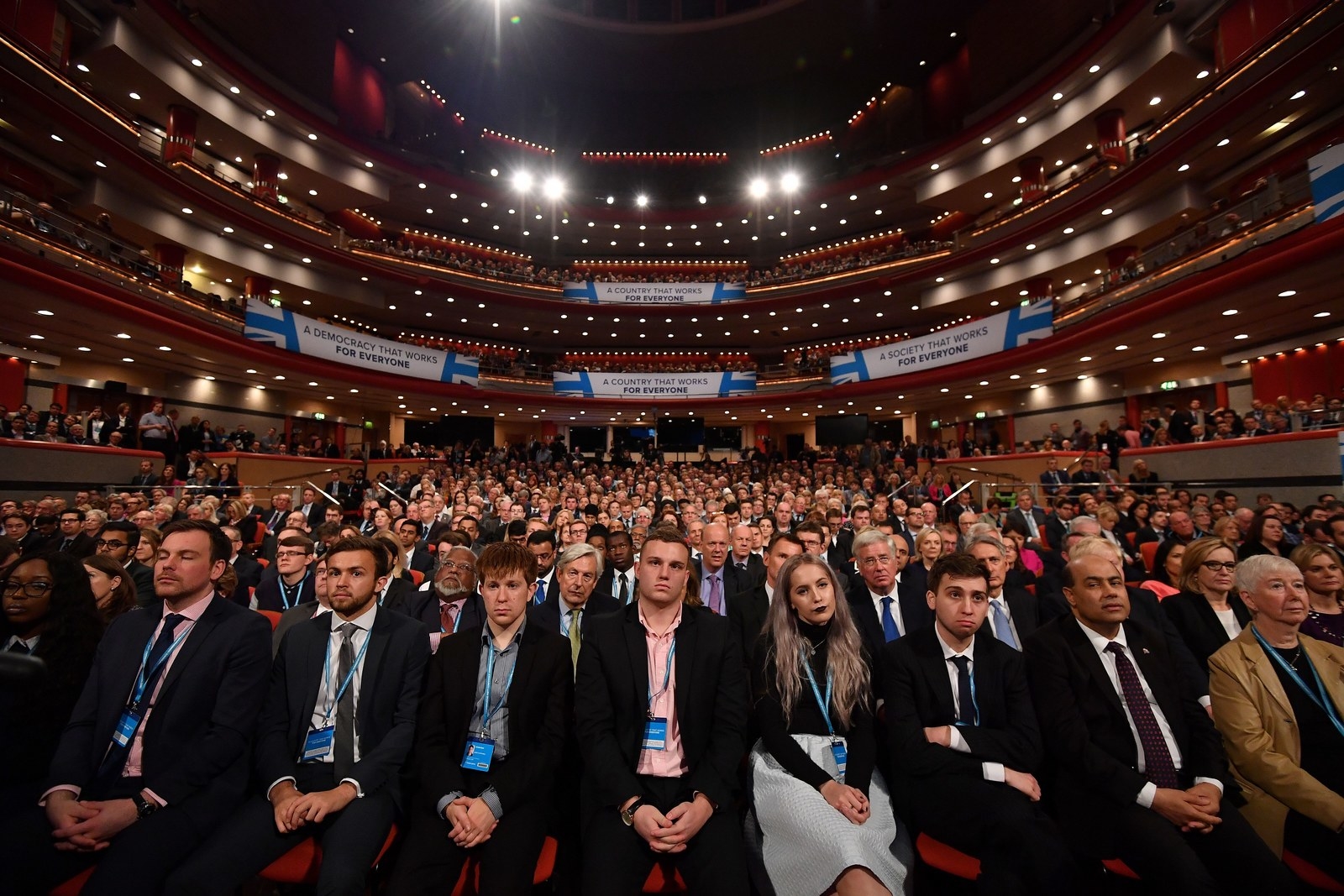
In her closing speech to the Tory conference last week, Theresa May signalled a clear break from the David Cameron era – a turn to the left on the economy, and the right on social issues.
She said her government would legislate to put workers on company boards and cap energy prices, after a conference dominated by talk of a "hard" Brexit that prioritised immigration controls over staying in the single market.
A former senior adviser to ex-Labour leader Ed Miliband said "Milibandism made it to Downing Street...just not the man himself," while a UKIP MEP said home secretary Amber Rudd's plans for businesses to disclose how many foreign workers they employ were a "step too far".
May has repeatedly and categorically ruled out a snap general election, meaning she is prime minister until 2020. And young Conservative party members are anxious about what the next four years hold.
"After Theresa May's speech on Wednesday I was feeling pretty disillusioned," 20-year-old Tom Shakespeare told BuzzFeed News.
"Forcing companies to have workers on boards or putting controls on energy prices is something you'd expect to see on Labour's manifesto, not a Conservative one. I didn't support the Tories last year so they could implement Ed Miliband's manifesto."
Shakespeare, an undergraduate student who joined the party three years ago because of his "belief in a small state and free markets", isn't alone in this unease.
Jeremy Driver, who is 27 and works in public affairs, said: "I’m very concerned that her speech signalled a move towards creating a more interventionist state. This will lead to worse outcomes and make people poorer.
"Two years ago, the party labelled Ed Miliband’s energy price control policy as 'Marxist' – it is now apparently government policy. I find it appalling that I’m a member of party that apparently only believed in free markets and sound finances as a tool to bash the opposition."
May's brand of Conservatism is certainly new to the party's youngest members – anyone under the age of 25 has never been able to vote for a Tory party not led by Cameron, and anyone under 29 was still under age before he became leader in 2005.

This means that for a whole generation of people who are right of centre, the only Tory party they've known as adults has been one that supported a smaller state, while unashamedly being socially liberal.
Cameron dragged his party into a centre-right position that was more palatable to the electorate and more attractive to young liberals who didn't see themselves as die-hard conservatives.
This is why someone like Jamie, a 19-year-old software developer who didn't want to give his surname, decided to become a member last year. "The tipping point for me was Cameron’s talk of social reform: While it wasn’t as grandiose as the policy plans from Labour and the Lib Dems, I felt like we finally had a party which could be trusted to handle the economy and implement some form of social progression," he said.
"I would like to hope his legacy would be one of equal marriage, unprecedented rates of job creation, and an attempt to capture the centre ground."
A 23-year-old Tory member who works in parliament and didn't want to be named echoed Jamie's feelings: "I'm basically pretty socially liberal but quite fiscally conservative; I liked that Cameron was a Europhile and had a mostly liberal, internationalist outlook. He introduced gay marriage, which was great."
Shakespeare had a similar opinion on the last Conservative government, saying: "Economically I think [Cameron] and [chancellor George] Osborne were pretty sensible in their approach, and socially things like gay marriage were a fantastic achievement."
Conference's post-referendum approach to immigration went down particularly badly with these young members.
Of the 10 BuzzFeed News spoke to, nine mentioned May and home secretary Rudd's attacks on immigration, unprompted.
"All signs now point to a hard Brexit with no single market access," Jamie said. "We’re going to lose hundreds of thousands of jobs and things like our banking passport so that Theresa May can get cheers for talking about 'labelling our own food'.
"It feels like we’ve become UKIP, especially with the nonsense about creating lists of foreign workers to 'shame' companies into hiring British people. We’re putting partisan politics above the national interest, and that isn’t acceptable on any level."
The 23-year-old worker in parliament who didn't want to be named went further, saying that though she'd initially supported May's leadership bid over the summer and "was very much prepared to like her", she now disliked "the animosity she and her cabinet are showing to immigrants".
"I find it offensive and ridiculous. People are not 'cards', as [Brexit secretary] Liam Fox stated. It may be true that it's a useful point of negotiation, but we shouldn't be telling people they're commodities. The contribution of immigrants to the UK is frequently overlooked. I think Amber Rudd's comments were tasteless and pointless.
"We can decry hate crimes and racism all we want, but we are, for many reasons, part of the problem and we are just fuelling the fire by indulging this. We will all lose if we succumb to this rhetoric and become a more insular society."

William Stark, a 21-year-old MA student, added that May has "given a large concession to the 'immigrant-concerned' now, and she must ensure that in the future they do not demand considerably". He warned that she should "listen to concerns from people, but not go as far as scapegoating".
The only young member who didn't mention immigration as a concern, a 24-year-old working in the City called Matt, still admitted "the pivot away from classical liberal Toryism to a more Christian Democratic conservatism was the worry for younger Tories when [May] said she'd stand".
Others were even concerned that post-Brexit, May's tougher immigration policies might make it harder to bring together a country split by the referendum vote.
"These ideas are only going to increase division and make immigrants feel less welcome, which is completely wrong," Shakespeare said. "There is a lot to do to bring the country together and close the divisions exposed by the referendum. Policies that appear to resemble xenophobia will not help with that."

Driver agreed, saying: "I’m very worried that this week’s conference speech signalled that the government is willing to have a damaging 'hard' Brexit purely to cut immigration. In the light of the vote to leave, I think some form of immigration control from the EU is inevitable – but this should not be at the cost of our prosperity.
"Not only are potential policies like limiting entry of doctors or expecting businesses to list foreign workers damaging to the country, they are also needlessly cruel and send out a bad signal to the world. We have always been an open and tolerant country that benefits greatly from immigration. We can’t fix the rifts in the country by feeding people’s, frankly, intolerant and wrong views."
This doesn't mean, however, that all these young members are preparing to quit the party under May. On the one hand, some like Jamie think that "people within the party making the case for things like single market access and a progressive immigration system need to stay and fight to make our voice heard".
On the other, members like Jack Thompson, a 24-year-old who works in public affairs consultancy, think that May needs to get a mandate of her own.
"I didn't support [having a general election] when she first took over, because I recognise we live in a parliamentary democracy. However, it is apparent that she is not continuing with the manifesto the Conservative party was elected on," he said.
"There are policies that weren't in the party manifesto and with Brexit changing the direction of travel for government, we deserve to have a chance to give our view. The EU referendum was one question: whether to leave the EU. It wasn't a policy platform.
"This is not the Conservative party I voted for last year and I'm not happy that a brand new government with brand new policies is ostensibly acting in my name."
None of the young members BuzzFeed News spoke to had considered joining other parties; some because they feel they have "nowhere to go", others because they think Labour are "a mess" and the Lib Dems "a bunch of wetties".
Thompson concluded: "All in all, I, like many socially liberal friends, feel very lost in politics at the moment."
